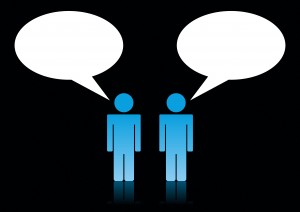I have often found it to be true that when you talk less, people want to listen more. If you want the words you say to have weight, use them wisely and leave people wanting.
Not only does speaking less and listening more add more gravitas to what we are saying, it also makes us much more pleasurable (and sometimes tolerable) to have around and to be around.
In his short letter, James reminds us of the following truth:
“Let every person be quick to hear, slow to speak…” (Js. 1:19).
The reason for taking interest in this concept is for the benefit of the people in our life. I have never heard of anyone who experienced a negative side effect from saying less while listening more. If we want to be wise stewards of our words, we need to use them sparingly and speak strategically. Keep in mind that this post is practical and prescriptive, not prophetic in nature.
Here are three tips that will help us all to talk less and listen more
1. Avoid thinking about what you are about to say, while the other person is speaking. This often happens, because we are obsessed with what we have to say. We subconsciously undermine the value of what the other person is articulating to us. Why? Because we are too busy thinking of what we will say next. We are “listening” externally but are contemplatively detached from the reality in front of us, internally. This must not be so. Let us take genuine interest in what the other person is saying to us, despite our humble and accurate opinion that what they are saying is laughably lackluster.
2. Avoid dropping the “Story-Topping” bomb. If I had to come up with the best way to “rain on a person’s phrase parade” (except if you live in Seattle, this analogy wont work since rain there is perpetually present), this would be the way to do it. This item goes along with the first one. When someone is sharing with you a delectable tale about their latest escapade, (our) thoughts are effortlessly drifting towards our mental filing cabinet, where we unassumingly check our arsenal of “Story-Toppers” that can top the story being told. As soon as the person is finished with their story, we are ready to drop the bomb. The “Story-Topping” bomb that is. Next time we are tempted to top a story, why not actually inquire about what the other person liked or did not like about that which they were telling you. Let us pause and think about what was being told to us. Let us take interest in the other person. This might cause people to think you are crazy for being interested in them. Because rarely is someone more interested in others than in themselves.
3. Use Open-Ended Questions. Instead of instantly offering your intelligent commentary on what was just said to you, why not extend the enthusiasm of the conversation, for the benefit of the other party. We can do this by asking open ended questions that convey a genuine interest in what the other person said. Open ended questions are questions that cannot be answered with a simple “yes” or “no” answer. Here are some sample open-ended questions that engage our listening skills and benefit the person speaking to us:
- How did that make you feel
- What did you like about it?
- How important is this to you?
- Tell me what you mean by that?
- What did you do when that happened?
The above is by no means an exhaustive list. Of course, your questions will be framed in a relative manner to that which you are discussing. Using open-ended questions in your conversation will do wonders to the quality of your interaction. You will speak less, listen more and both parties will benefit. Try this during your next conversation. You will be amazed at how much people appreciate the fact that you were actually listening to them.
I personally have been on both sides of these tips. A quality conversation is one in which the other person is the center of attention. Let us pursue this in our interactions.
Question: Have you experienced a great conversation with someone who adhered to the above tips? If so, what did you enjoy about the interaction you had?

Leave a Reply